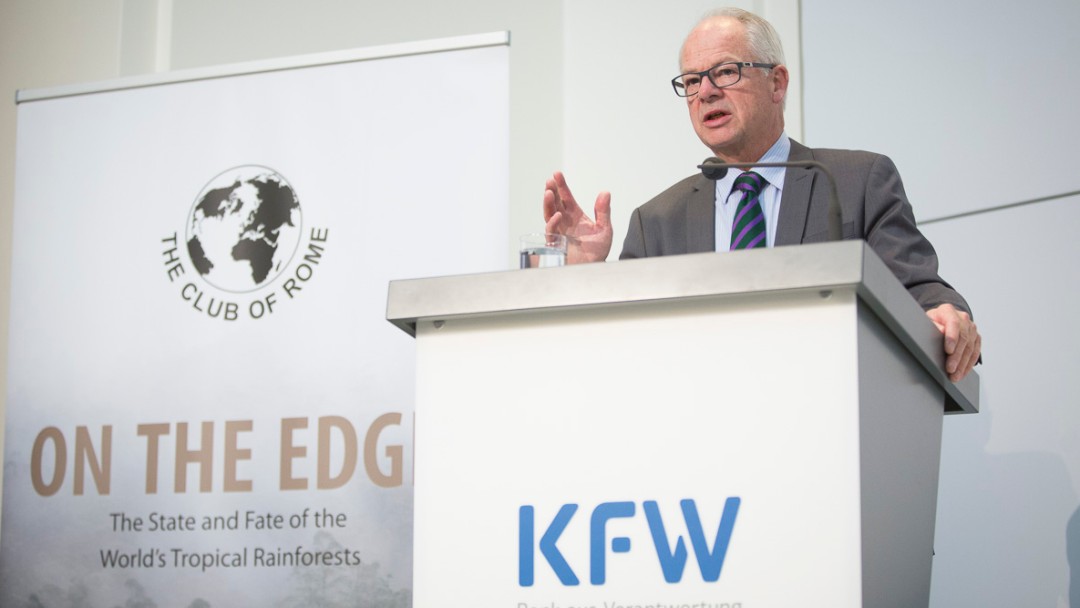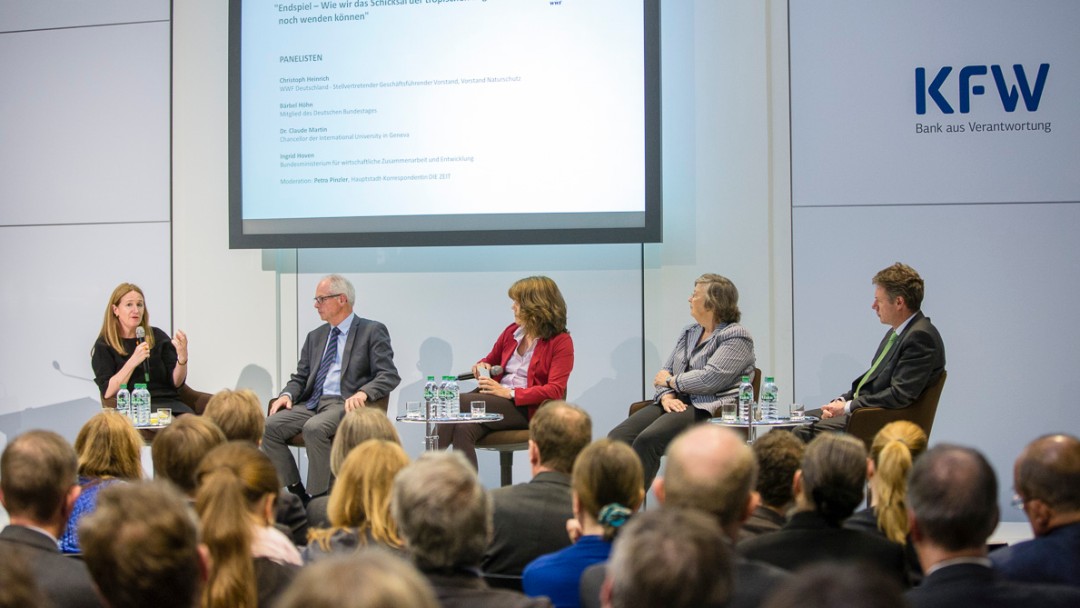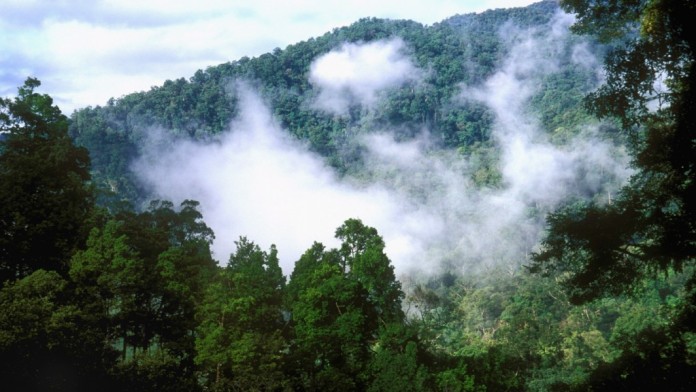News from 2015-05-22 / KfW Development Bank
"On the Edge" in forest protection
Event with former head of WWF in Berlin
"On the Edge ‒ The State and Fate of the World's Tropical Rainforests", is the title of a book by Claude Martin to the "Club of Rome", which the author presented on Thursday at KfW's Berlin office. According to the main theory of the former WWF Director General, there is still reason to be hopeful, in spite of all the deforestation, because recently the rates of forest destruction have dropped slightly. Martin was the keynote speaker at a joint KfW and WWF event in the standing room only historic banking hall. His words were preceded by a short welcome speech from BMZ Secretary of State, Thomas Silberhorn, among others, and followed by an expert discussion.
Forest protection key part of development funding
Norbert Kloppenburg, Member of the Executive Board of KfW, described the rainforests as an "immeasurable treasure" that needs to be looked after at all costs. KfW contributes to this by means of extensive forest protection programmes throughout the world. State Secretary Silberhorn pinpointed protecting and preserving national parks, managing natural forests more sustainably, rebuilding forest landscapes and promoting agricultural supply chains that avoid deforestation as the main strategic priorities of forestry policy at the BMZ. Forest protection is and will remain a key BMZ policy.
In his welcoming address on behalf of the Club of Rome, Ernst Ulrich von Weizsäcker recalled that we can only achieve positive changes if we face up to current realities. And one part of this reality is the progressive destruction of tropical rainforests. His principle backs this up: those who preserve virgin forest when doing business should reap the economic rewards.
Claude Martin then added that there are also positive signs, despite all the deforestation activities. Roughly half of the primary tropical forest documented still exists, and is largely intact. The rates of deforestation have been declining moderately for years. Nonetheless, Martin also made it very clear that there is still some way to go until deforestation on the planet comes to a complete stop – "and this is imperative from an ecological and social perspective but also for reasons of climate protection".
Cattle farming and soya bean growing in Latin America and Asia, palm oil production in Asia and shifting cultivation in Africa are still the main driving forces behind deforestation; pushing through a change in production methods is making very slow progress. What is particularly alarming, according to Martin, is that fragmenting the tropical rainforests makes them more vulnerable to the consequences of climate warming. "Reaching this tipping point must be avoided at all costs."

Stopping deforestation, protecting forests
Member of the German Bundestag Bärbel Höhn (The Green Party) supported Martin's theories in the subsequent panel discussion. She also reminded us that we can contribute to avoiding deforestation through our consumer behaviour and how we live our lives.
Ingrid Hoven, Head of Department at the BMZ, said we are on the right path. At the same time, however, she believes that climate and development perspectives should be combined for reasons of effectiveness. Furthermore, the financial incentives for avoided deforestation should reach the place where they belong, "with the people".
Christoph Heinrich from the WWF also attested to the fact that the German federal government is on the right path with its forestry policy, but added that new and more powerful instruments are required to forge alliances between governments and civil society. These in turn are necessary if we want to put an end to the main driving forces behind deforestation. Otherwise, the goal of eliminating deforestation completely will not be achieved.



Share page
To share the content of this page with your network, click on one of the icons below.
Note on data protection: When you share content, your personal data is transferred to the selected network.
Data protection
Alternatively, you can also copy the short link: https://www.kfw-entwicklungsbank.de/s/enzBWrMC.BDdA
Copy link Link copied